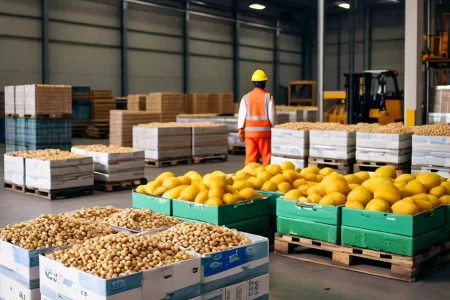Fruits and vegetable exporters in Ghana are teetering on the brink of collapse as skyrocketing compliance costs, particularly from European buyers, threaten to cripple their operations. The situation has become dire as exporters now face overwhelming financial burdens, with compliance requirements multiplying drastically. What once involved two certification processes has exploded into demands for up to 6 or 7 different certifications, each costing between $2,000 and $3,000. For many farmers, this surge in costs is unsustainable, pushing them closer to shutting down their export businesses altogether.
The root cause of this harsh new reality lies in Ghana’s illegal mining activities, or “galamsey,” which have severely polluted water bodies and left dangerous residues of cyanide and other toxic chemicals in the soil. European buyers, concerned about food safety, have imposed stringent testing and inspection protocols on all produce, even those from areas far removed from the illegal mining zones. As a result, Ghanaian farmers are being forced to meet higher compliance standards, irrespective of where their farms are located.
Speaking to The High Street Journal, a number of farmers expressed their despair over the situation. Inspections that were once confined to their farms have now extended to their warehouses, where they store produce awaiting export. They are also grappling with unannounced visits and inspections from buyers or their agents, each adding more costs. Before orders are placed, samples of their produce are taken to laboratories in Europe for testing to ensure they meet the required standards, further delaying the export process.
The economic toll is already being felt. Data from the Bank of Ghana reveals an 8.7% drop in revenue from non-traditional exports in the first half of the year, falling to $1.5 billion. This decline in export revenue is partly responsible for the country’s worsening dollar shortage and the subsequent depreciation of the cedi. Farmers are warning that unless the situation improves, many will soon be forced to fold up their operations entirely.
The ramifications of this crisis are profound. Most of the fruits and vegetables these exporters grow have little demand within Ghana, with only about 20% consumed locally. Without access to international markets, their businesses will simply cease to exist. The collapse of these export businesses would not only devastate the agricultural sector but also lead to a further decrease in foreign exchange earnings, deepening the country’s financial crisis.
Source:thehighstreetjournal.com

